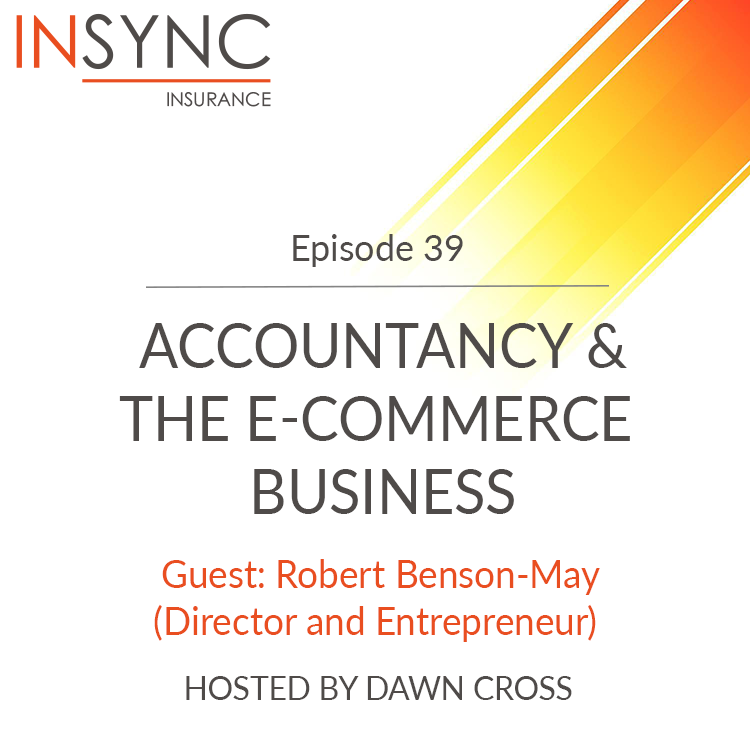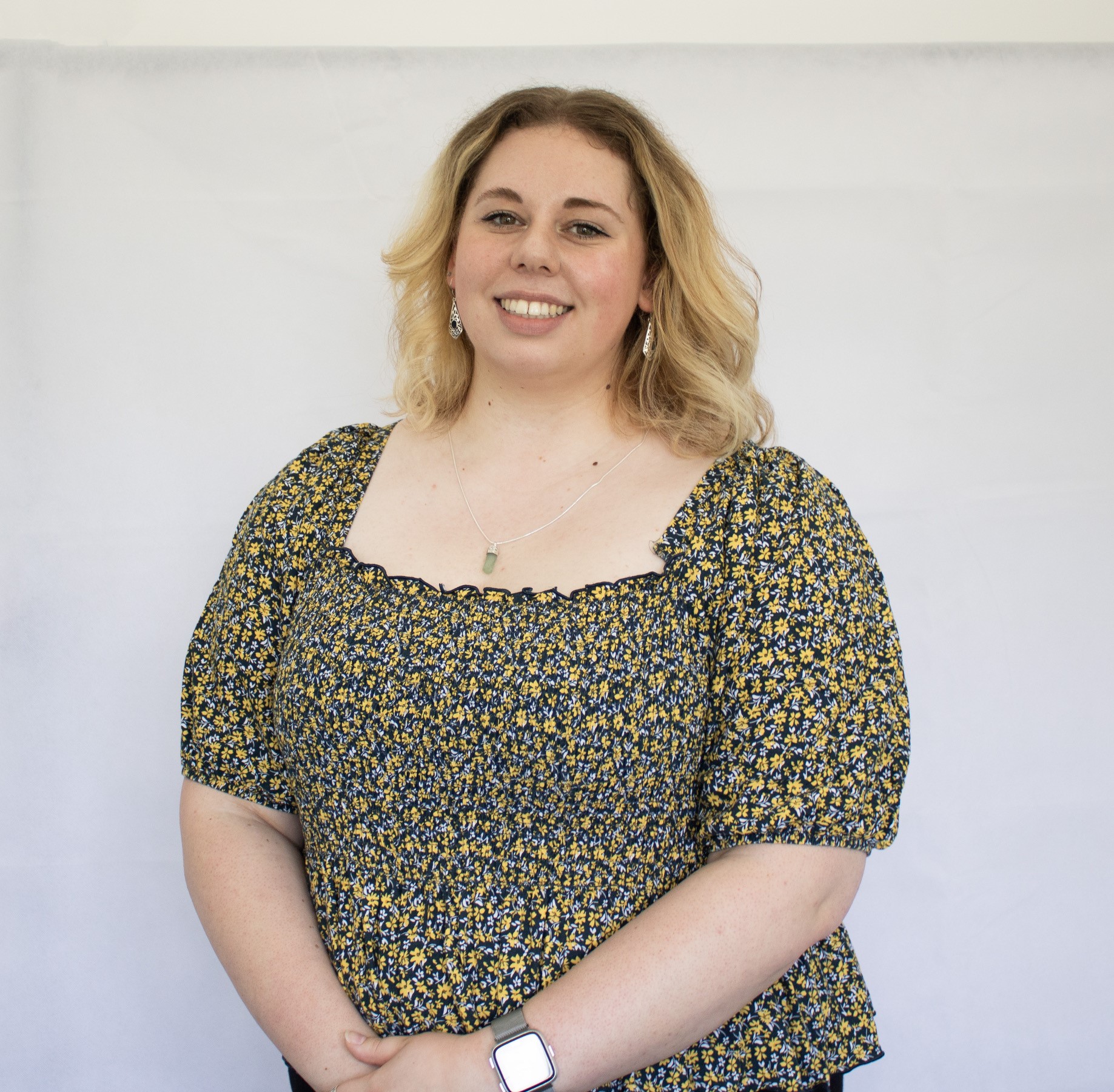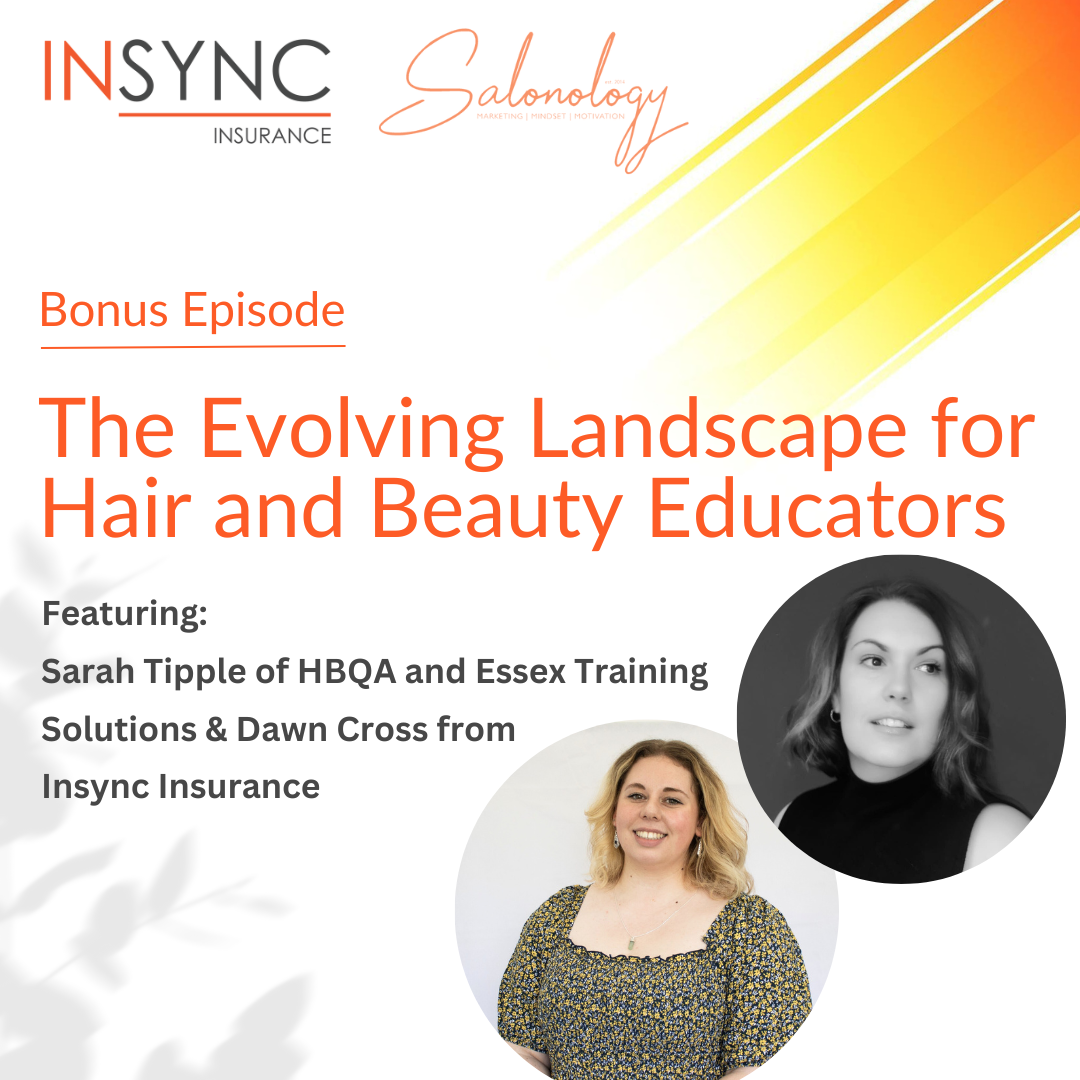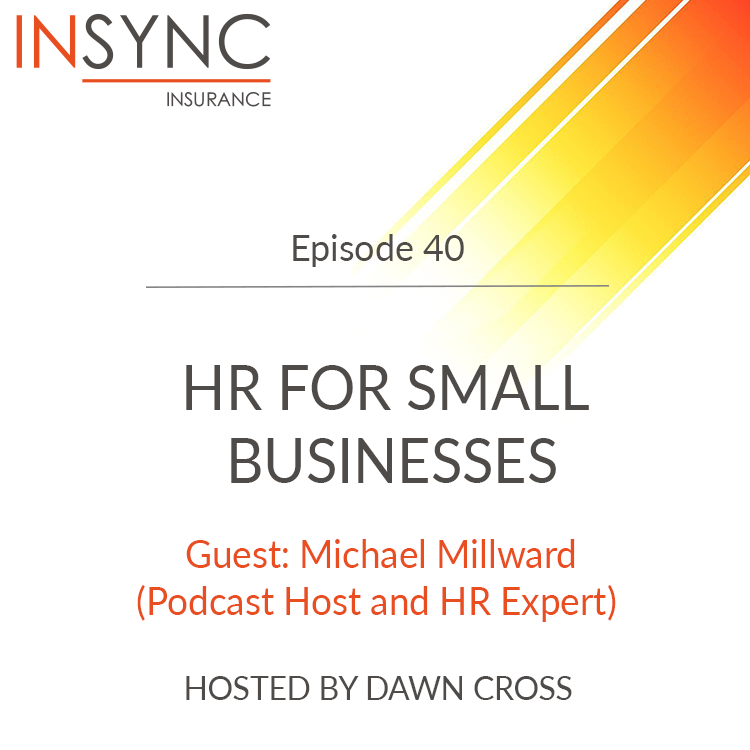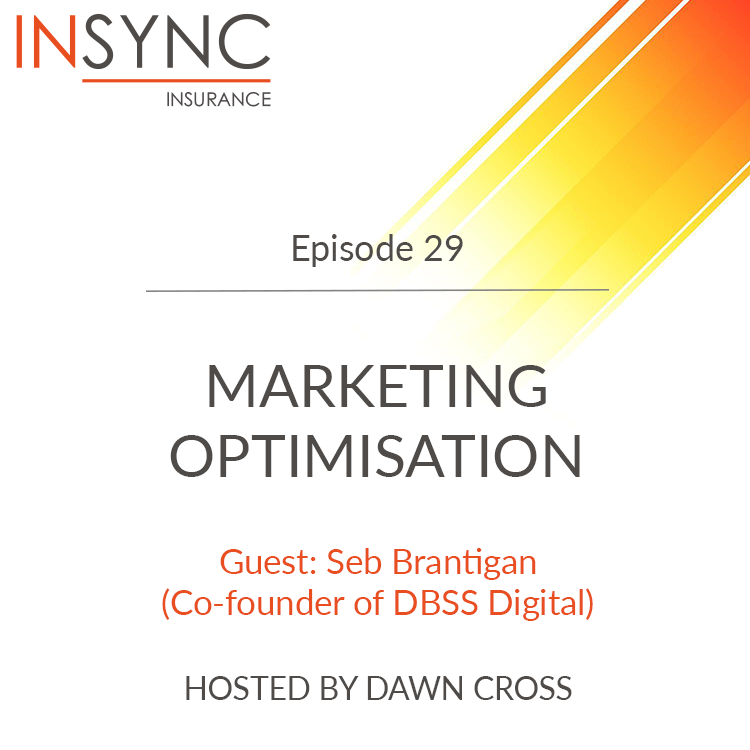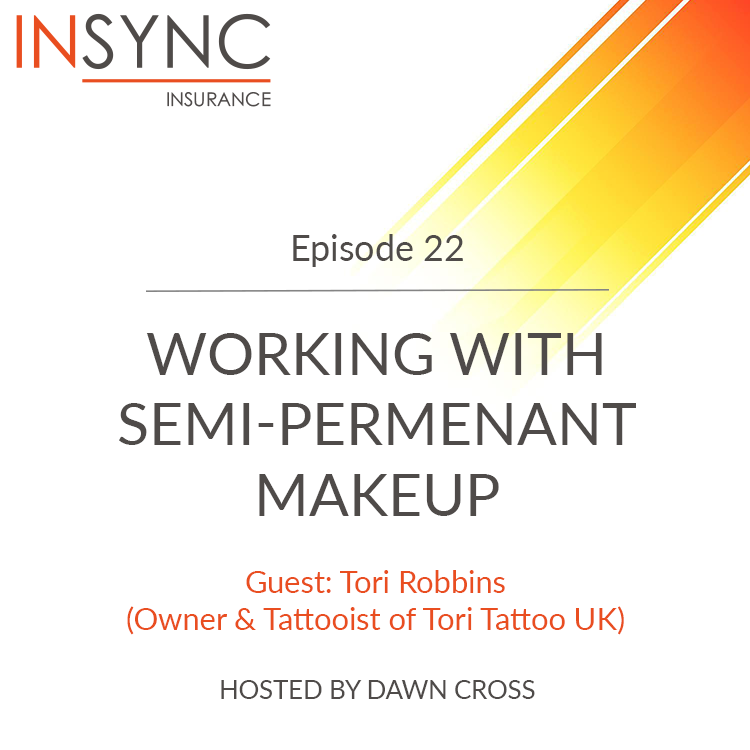Episode Transcript
[00:00:04] Speaker A: Welcome to the in Sync Assurance podcast. I'm your host on cross and today I'll be discussing accountancy and e commerce with Robert Benson May, chartered accountant and entrepreneur.
If you enjoy our podcast, make sure to leave a rating on your favourite podcast directory.
[00:00:21] Speaker B: So can I get you to start off saying who you are and what you get up to in your company?
[00:00:27] Speaker C: Yep. Hi, my name's Rob, I'm a chartered accountant and a director and accountancy practice, Warren co chartered accountants. And in my spare time I got to around 50,000 pounds in e commerce sales in the home garden retail niche and now I'm doing a newsletter in my spare time.
There you go. There's your short summary for you.
[00:00:48] Speaker B: So a person with many, many talents, many fingers and many PI sits a little bit.
[00:00:54] Speaker C: Yeah, I do find myself quite busy, but, you know, you survive.
[00:00:58] Speaker B: I do survive, yeah, that's good.
So how did you get into e commerce and accountancy? So they're two very separate things, but you've somehow managed to do both very well and I'm curious to see how that all started off.
[00:01:14] Speaker C: Yeah, yeah. So I'll start from the start. So it's a little bit of a somewhat interesting story. A few different ducks and dives. So I started doing maths in uni. That's probably where best to start. And I actually probably spent more time playing online poker than I did doing maths. And now I don't really enjoy gambling, so it's a little bit unusual, but I found myself making minimum wage, using software to track other players online and doing four tables at once. And I managed to get up to a couple thousand pounds or something like that. And then I spent all my winnings on my rent. So it got me through uni for the last year.
I was very sad and I finished uni and I kind of didn't know what to do at that point, whether I wanted to pursue various different things, but I was always kind of interested in business and watching things like Dragon's Den and the Apprentice. And my dad was an accountant, so he suggested maybe I should be an accountant because it's a good way to understand business and to look at what's. Yeah, get a good understanding, a good feel for everything. And if I wanted to do something else, I could pivot into that. But, yeah, so I found I did quite enjoy it. So I started studying ACA at a medium sized accountancy practices and while I was studying, I kind of found a. Got a bit of an itch to scratch. I wanted to try and get the ball rolling on a little side business. So I started a print on demand e commerce business selling t shirts. And at that time I had no idea what I was doing. Maybe I still don't, but yeah, so I quite enjoyed getting it started and I managed to get maybe one or two sales doing Instagram and Facebook, but it didn't really go anywhere because I didn't really know what I was doing in terms of marketing.
But I tried to get a feel of how do I actually make some sales, how do I get some finished affiliation with the brand from people and build a relationship between the customers and the business. So I thought, okay, what I'll do is I'll go and run a few music events and see how that goes and whether that builds a bit of a relationship between the customers and business. So I was interested in drum based music. So I set up a couple of events and they exceeded my expectations. I was quite pleased with that actually. So I got about 150 people to the first one, the second one somewhat similar and all my friends keep asking me to do a few more, but it's quite hard work and quite a lot of effort, a little bit of stress. And I also felt it wasn't really super scalable so that made it a little bit more difficult. So I pivoted and decided, right, I'm going to start retail business. And the main reason being is since it was print on demand and it was almost direct to consumer, doing a retail business means that I've got loads of different options, loads of different skus to go find a winning product or at least one, and then maybe get quite a few more. And I managed to, so I did that in the home and garden niche. I managed to get up to around 50,000 pounds sales in the end before I had an issue with my hands, I couldn't, I couldn't type for a few months, which was very sad, someone typing for me at work which wasn't great and yeah, so I had to stop that. But alongside that I've been gradually building myself up as an accountant. So started a medium sized practice, qualified there, ACA went to THG, if any of you guys know, up group with my protein and looked fantastic. And then I went to war and co chapter counts and seemed to find myself jumping up that ladder very quickly and being a director for a couple of years now or something like that and yeah, having a great time.
[00:05:24] Speaker B: Well it sounds quite an interesting kind of, you just kind of dabbled and just kind of went to see how things worked basically. And just kind of went for it instead of. I mean, it wasn't necessarily a quick ambition that you had for years and years, per se, but it's still something you were, you know, passionate about in the moment sort of thing.
[00:05:44] Speaker C: Yeah. Yeah, there's, there's a bit of kind of pivoting and kind of finding it, finding a path, because ultimately I find it really interesting. I'm very interested in business and mainly the marketing side, actually. I find that kind of somewhat of a passion to extend, and that's a big part of business, trying to get customers, isn't it? So if you can't, you're not good at marketing, you're not going to get any sales. So, yeah, I'd say so, definitely.
[00:06:09] Speaker B: I mean, as a marketer myself, yeah, I definitely would say it's a very interesting job and there's so many different little avenues you can go down things.
Brilliant. So my next question for you is what advice would you give to people looking to start a business? Obviously, you've had some ups and downs, like you were saying, and like, what do they need to consider when kind of going down this route?
[00:06:35] Speaker C: Yeah, I think the first thing is just to start and start trying to wing it and see what happens, because people spend loads of time planning and get really nowhere, most of them. And your first business probably isn't going to really get anywhere. So it takes a while to kind of learn and get a lot better. So just iterate and pivot and listen to a load of podcasts and see if you can learn some stuff from people. But I think getting customers is kind of the hardest thing. And that's, that's the main focus when you're getting started, or at least it was for me, whether you have a similar experience. But yeah, that was kind of the hardest thing. So focusing on marketing and the different routes of actually getting someone to go and even make a purchase with you or become a client, something like that. So the things that worked for me were primarily paid ads and email marketing. That's the work for me. SEO is a big, big factor and that's something I'm really focusing in for my next business and then beyond that. So when I had the ecommerce business, one of the big problems was that it was mainly driven by Google Ads. That was pretty much what was, what was driving all the sales that formed smarts campaigns.
But I wasn't really making any money on the first sale. It was only kind of the repeat sales where I made any cash. And I think from knowing a lot of people in the industry, that's a lot of people have similar experiences. So you kind of have to focus on the cost of acquisition versus the lifetime value. So that repeat customer, how do you get someone to retain and a big portion of that's email marketing, as you probably know. But yeah, that cactell tv, really, really big thing. And it's something that if I'd have known a little earlier, it would have helped me a lot better.
[00:08:31] Speaker B: Definitely. I think as well, something that I've seen personally as a marketer is that I think people shouldn't have to necessarily try and go for all the channels, all the different avenues all at once, because you will kind of burn yourself out and there's only so many. And also, like, depending on who you're targeting as a customer, like, email marketing might actually be like the perfect thing and might actually be kind of like the worst thing, you know? And I think people need to definitely do their research into kind of what marketing channels their customers use and focus on those rather than try and do everything and have like, you know, threads X, Facebook, Instagram, LinkedIn, TikTok, and then some, when actually a few of those can make the biggest bang. And the other day, then you're not fully focused on that as well as trying to run your business. Because I'm guessing, you know, if you start a business, probably going to be just you, maybe one other person, if.
[00:09:24] Speaker C: You're lucky, and you can drag someone else into it. Yeah, yeah, no, I agree. I do think you have to do a lot of experimenting, especially if you don't know what you're doing, you've got to try a lot of different things. But as soon as you find one thing that works, just double down it and just keep doing that over and over again until. Cause a big part of the strategy of marketing is actually the intensity that you do, isn't it? So if you just dabble in a load of different things, it's probably not gonna get anywhere. But as soon as you kind of see some kind of traction in that particular channel, then double down and go a lot more aggressive on it and see what happens.
I'm not the fountain of knowledge, but that's what worked for me anyway.
[00:10:09] Speaker B: I mean, that's definitely a good size, obviously, once you find something good to it. I think that should be a slogan on a t shirt, to be honest.
[00:10:17] Speaker C: Yeah, I know. Yeah, I'm glad I didn't make that one when I had the t shirt business, but maybe I should have.
[00:10:24] Speaker B: So obviously, you know, you were speaking about your e commerce business, and I would love to know kind of what are the pros and cons of doing it? Especially like with the cons, you know, what kind of drawbacks do people need to prepare for or at least just keep in mind when they kind of start next? I think a lot of people think, oh yeah, I'm going to be successful. And they don't think about the kind of negatives that could come along or that could, you know, creep up on them before you know it. They haven't prepared enough for disaster.
[00:10:52] Speaker C: Yes. Yeah. Well, I'll speak kind of from experience, the challenges I face, a big part of it is that you actually spend, especially if you just start and you find yourself spending a lot of time in fulfillment. So if you don't get a three pl, a third party logistics warehouse or, you know, have your own warehouse where you store some stuff, when you're starting, you're going to be picking and packing your own things and you're going to be shipping it out and then you're going to have to go to the post office or go to Tesco's to ship your parcels. And if you're just starting a little e commerce business, you actually have to spend all the time in the marketing because that's the way you actually get sales. So if you're spending time on fulfillment, you're not spending time on growing the business.
A very easy trap to get into. So when I got up to around thirty k and I was just stuck there for like a couple of years when I couldn't really push it on because I was at capacity, you know, even hiring my friend's cousin and stuff to help out, that kind of stopped me a little bit. And it was only when I got into a three plus kind of comfortably get up to then obviously I have to stop.
So fulfillment was a big challenge for me. So you might kind of want to just the advice for someone else doing something similar to me is validate it as quickly as you can and then go get it in a warehouse or three pounds if you want to try and scale it, because you're not really going to be able to scale it beyond that. But beyond that, the other challenges or something that I really kind of realized is it's not really a cash flowing business.
What's happening is you're making some profit investing in stock, making some profit investing in stock, and that just keeps going and going. So it can actually be quite hard to pull money out of the business because you just want to, want to keep growing. So for the first five years, you're not really going to be getting much unless you've gone and put a load of money or got some venture backed, venture backed money to actually go and buy a load of stock and have the margins then to actually pay yourself. So the cash flowing side is a big issue with business and that's quite specific to each person's circumstance, what they can do. So that is a challenge. But the other challenge that a lot of people have is there's loads of transactions with e commerce businesses, even at a small level. So we get loads of different, so I deal with stuff from kind of zero to like a couple of hundred mil of e commerce sales and even the ones that are doing, you know, thirty k, one hundred k, five hundred k, something like that. They might have like five different channels. So like Amazon, they're out of the website, eBay, etsy, whatever. And they struggle kind of actually amalgamating that in their accountancy software. That's a big challenge that they have and I think they do okay keeping track of their orders generally. If like say they use Shopify and they're able to integrate everything together, they, they seem to be okay with that. But then they just seem to get battered in terms of actually bringing the sales into their accountancy software. That's a big challenge that I see. And it also takes quite a way from, you spend a lot of time on fulfillment, you want to spend all your time on the marketing and you don't want to spend any time on doing your books. But that's a big challenge that a lot of people have. It wastes a lot of time, unfortunately.
[00:14:38] Speaker B: That's really insightful, I think as well some people don't tend to forget that actually, because obviously if you're starting off small, you do need to do every little bit. So especially with doing the books. Although some people might be like, oh my goodness, it's gonna be hard. It's really important to get it right as well because obviously, you know, from an incantancy perspective, obviously if, you know, you don't track things properly, there could be issues down the line, isn't there? So it's always, you gotta like, I think you've got maybe have those core skills to be like, okay, I can do the books and stuff until I'm able to hire someone to do it for me and I'm able to do some marketing and some of this and some of that. So like basically you might maybe go like do some YouTube learning before you officially launch. Then you know, kind of what you're doing in each little section as much as you can before you can bring in some like experts or professionals that can cover those spots for you a little bit.
[00:15:30] Speaker C: Yeah, yeah. So when, when you sign up, you will need an account to do your, if you get a limited company, you will need an accountant to do your year end. You kind of don't have a cat now's chance to do that, but yeah, I would.
A little bit of learning, go and get something like Xero or free agent or even quickbooks is decent.
Any of those will be fine for you. But yeah, that's a lot of what the accountants have to deal with. But the main thing is to send a lot of reports to your accountants and you give them access to everything so that they can go and do it and you don't have to do it. So, yeah, that's a big part of it.
[00:16:13] Speaker B: I love it. So is there anything else you'd like to add before we wrap up the episode today?
[00:16:20] Speaker C: No, I'll just stuff a very small, small plug. So if you made it this far, go check out my newsletter, pickle rooms sharing stories for startups. So if you like this, you might like that. Cool stories about people making money. Or if you need an accountant, go. Go check me out on LinkedIn. Robert Benson May thanks for having me, dawn. Appreciate it.
[00:16:40] Speaker B: So thank you so much for your time today. I really appreciate it.
[00:16:44] Speaker A: Thank you to my guest today, Robert Benson May, for chatting by its expertise and experience in accountancy in e commerce. If you're interested in the services, please click the link in the description.
I have been your host, Dawn Cross and tune in next week for another episode.
NSYNC is one of the UK's fastest growing insurance providers, offering comprehensive cover for SME's and the self employed across the UK. Our expert team can tailor your insurance to meet your individual business needs and compare prices. For our Lloyds of London approved partners, we offer a five star service and have been FiFo Platinum trusted winners five years in a row.
